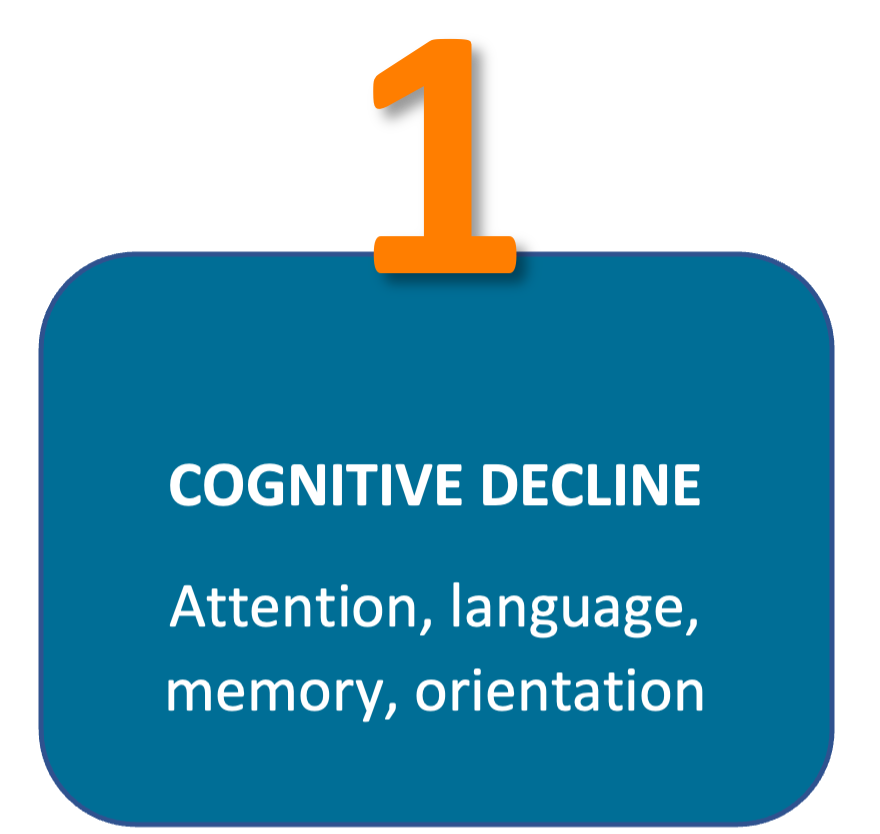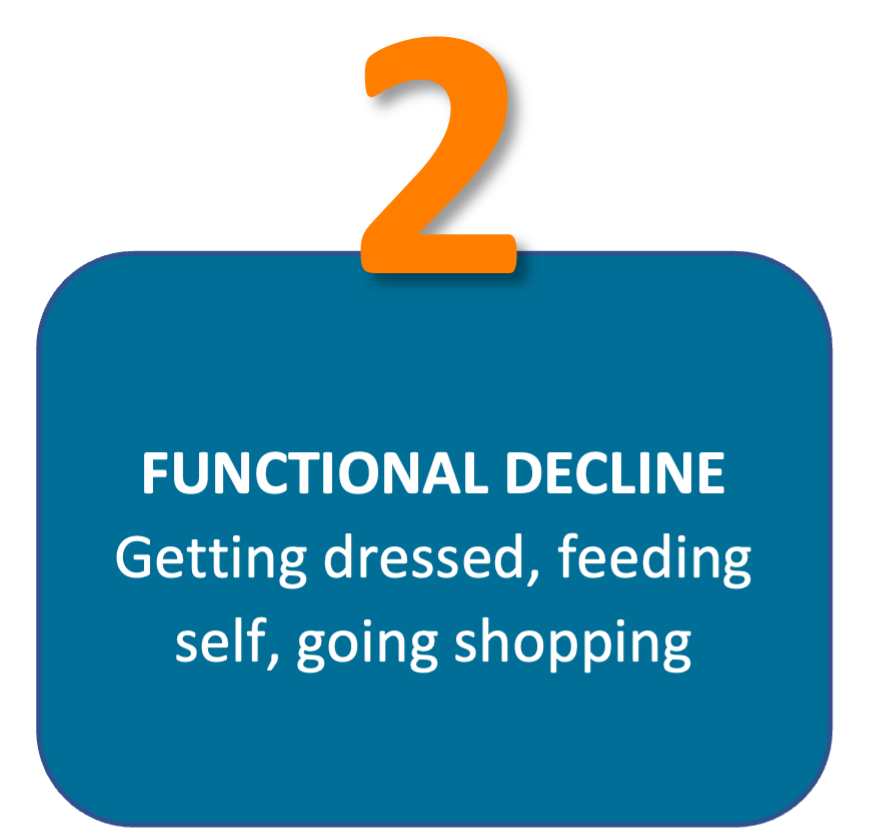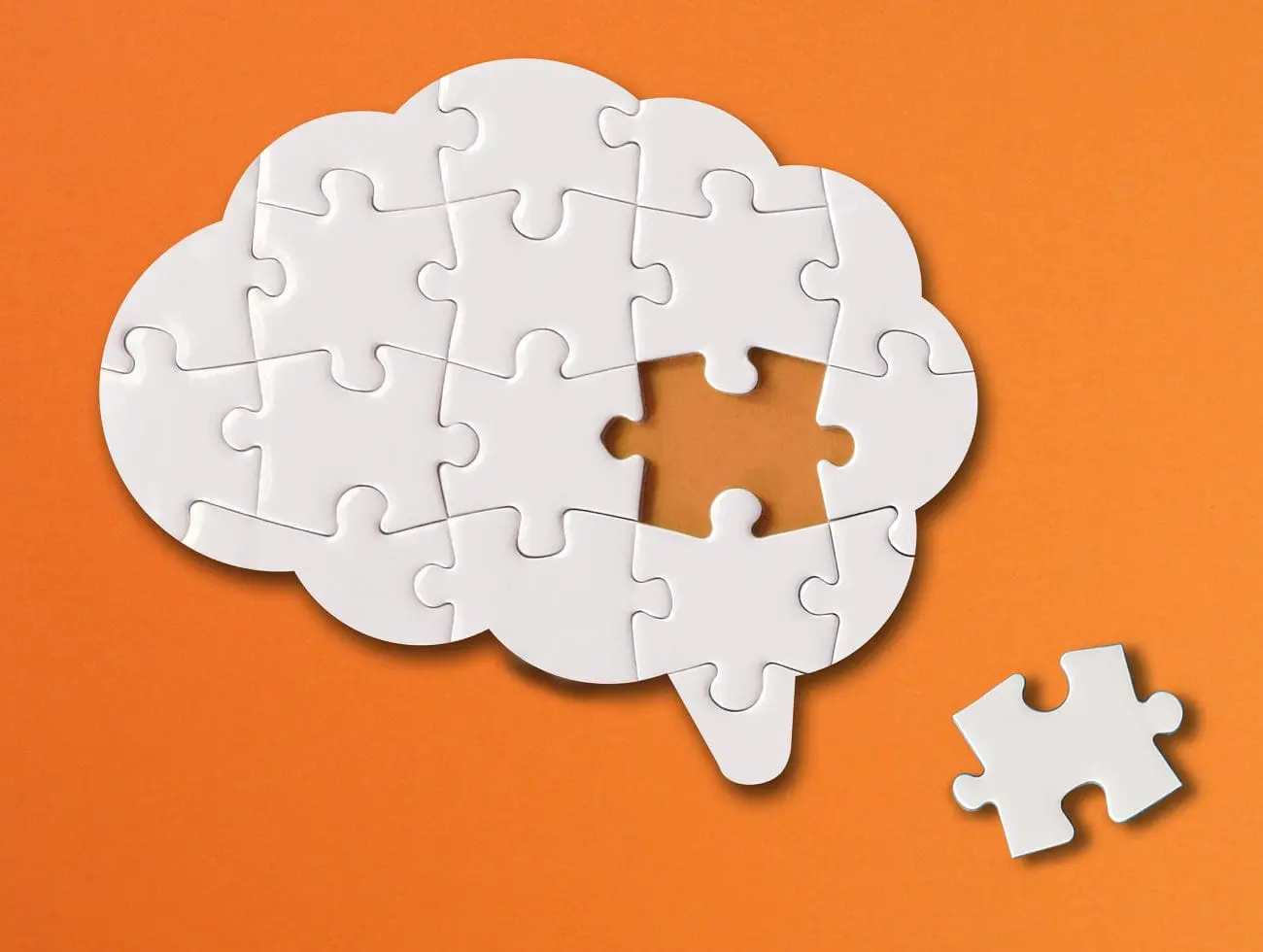In 1999, psychiatrist Dr. Barry Reisburg and his colleagues published a study offering a new way to understand the ongoing changes to the brain, making more sense of the progressive decline seen in dementia.
Coining the term “retrogenesis,” meaning backward (retro) beginning (genesis), Dr. Reisburg explained that the stages in which a person living with dementia loses their functional abilities are similar to how a child develops life skills, but in reverse.
In the progression of dementia, a simple phrase for remembering this idea is “first in, last out”—the first things a child learns are the last things lost by a person living with dementia.
Example: A child learns to use the bathroom on their own at approximately age 2-3. When a person living with dementia loses this ability, they are at a similar cognitive developmental age because they can no longer take themselves to the bathroom and require help with this skill. We aren’t advocating for treating a person living with dementia like a child. What matters is communicating with them in a way that is appropriate for their cognitive abilities.
The retrogenesis model focuses on two areas in which decline can be measured:


While it’s essential to continue to advocate for individual autonomy, the retrogenesis model helps us better understand what our loved one’s abilities are as their dementia progresses. It provides us with a general timeline of decline, allowing us to be better prepared for the changes ahead.
The following chart highlights how childhood development can mirror the path in which a person living with dementia loses their cognitive and functional abilities.
| Cognitive Age vs Level of Impairment | What a Child is Learning vs What a Person Living with Dementia is Losing | Appropriate Responses for a Person Living with Dementia |
|---|---|---|
| Age 8 to 12— Mild Cognitive Impairment | A child learns to count/manage money, while a person living with dementia may no longer be able to manage their own finances Children start doing more complex chores, while a person living with dementia may have a harder time completing tasks at their job | Let a person living with dementia keep a wallet or purse with some change/expired credit cards or other familiar items Work together on a task if more complex activities are too difficult for your loved one to do alone |
| Age 2 to 7— Moderate Cognitive Impairment | A child learns how to do hygiene activities like brush their teeth and wash their hands, while a person living with dementia can no longer put toothpaste on a toothbrush or hold a brush A child learns to dress and make clothing choices, while a person living with dementia needs increased help with dressing as they forget how to choose clothing and putting clothing on | Break down a task into multiple steps to simplify the process or place signs near areas where hygiene is completed that give a person living with dementia directions/reminders Offer 2 choices when dressing to continue to promote self-determination |
| Age 0 to 15 months—Severe Cognitive Impairment | A child is learning how to manage their physical body (hold their head up, roll over) while a person living with dementia may lose the ability to support themselves and require physical aids for comfort Children require help with all activities of daily living to function, just as a person living with dementia will | Ensure a person living with dementia is receiving proper physical support to avoid accident or injury and is repositioned if they are unable to adjust themselves Create an appropriate environment for a person living with dementia—speak in a soothing manner, do not startle them, offer connection through gentle touch |
Helpful Titles
We suggest these titles for further reading:
Age Regression (retrogenesis) in Dementia Patients (familycaregiversonline.net)
The radical impact of seeing Alzheimer’s as a second childhood | Psyche Ideas
Alzheimer’s Foundation of America | Therapeutic Activities for 3 Main Stages of Alzheimer’s disease (alzfdn.org)
Early Child Development Abilities by Age | Pathways.org
Reisberg, B; Franssen, EH; Hasan, SM; Monteiro, I; Boksay, I; Souren, LE; Kenowsky, S; Auer, SR; Elahi, S; and Kluger, A. “Retrogenesis: Clinical, Physiologic, and Pathologic Mechanisms in Brain Aging, Alzheimer’s and Other Dementing Processes.” European Archives of Psychiatry and Clinical Neuroscience 1999: 249 Suppl 3:28-36. doi: 10.1007/pl00014170. PMID: 10654097.

